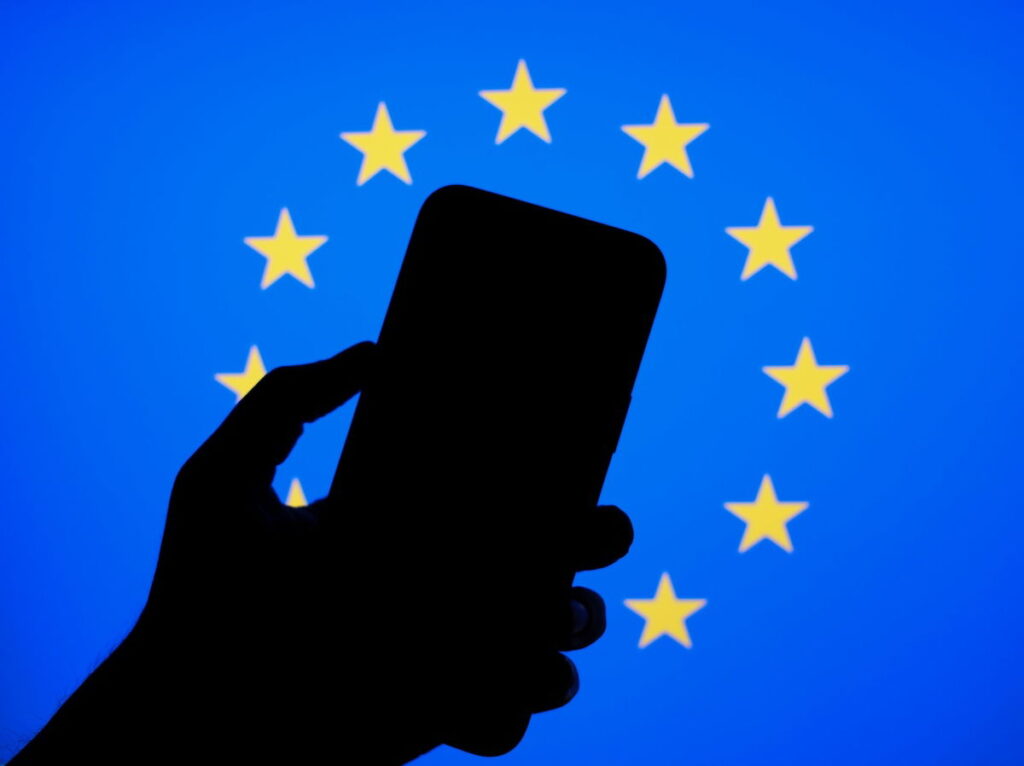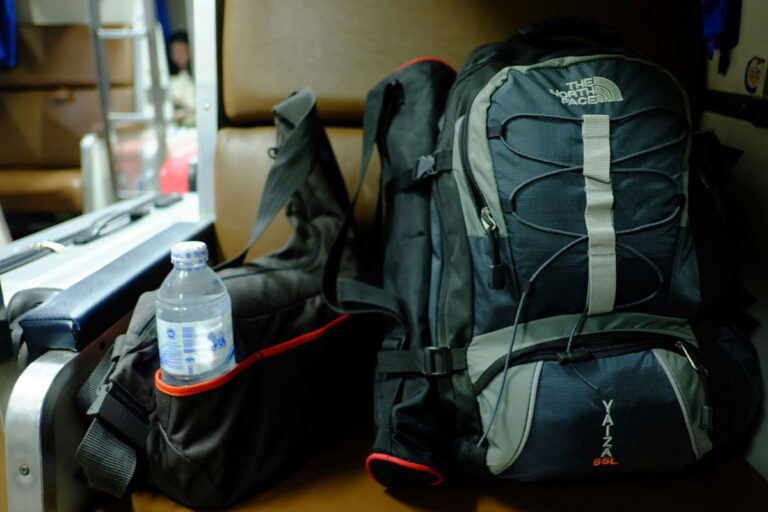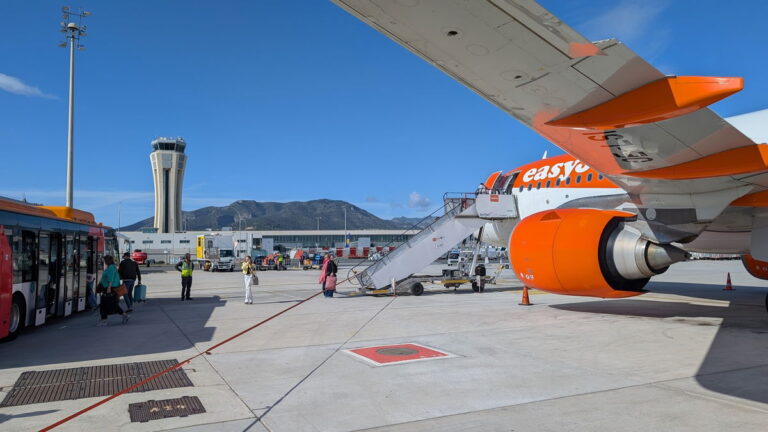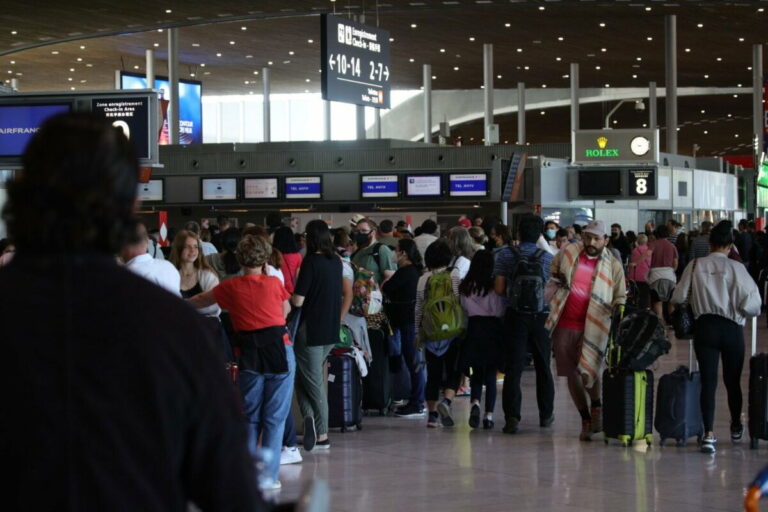
Silhouette of a hand holding a smartphone in front of the flag of the European Union (EU.)Credit: James Lovering, Shutterstock
Planning a European holiday? Some travellers face surprise roaming charges that could wreck your budget. Find out which networks charge, who still offers free EU roaming, and how to avoid a shocking phone bill!
UK tourists face surprise phone bills in Europe — check your roaming plan now
British sunseekers packing their flip-flops and Factor 50 for Europe this summer are being warned: your mobile could burn a bigger hole in your pocket than the midday Med sun.
Major networks including EE, Three, and Vodafone continue to charge daily roaming fees across Europe—turning what was once a carefree perk of EU travel into a potential minefield of unexpected costs. Years after Brexit ended guaranteed free EU roaming for UK residents, many travellers are still caught out, facing fees that could leave them crying into their sangria.
Guaranteed free roaming days are long gone — but many Brits still get caught out
Always check your phone plan. There is no guaranteed roaming anymore. Before Brexit, UK mobile users strolled the beaches of Benidorm with worry-free YouTube, WhatsApp, and calls thanks to EU rules banning roaming charges. But since Britain left the EU, those protections have long since expired—yet confusion remains, and many Brits still assume free roaming comes as standard.
The reality? Some telecom giants have kept daily roaming fees firmly in place: Three demands £2 per day for EU roaming, EE starts at £2.59, and Vodafone slaps on £2.42 a day—each with enough data caps and sneaky terms to send your bill sky-high.
Three’s £2-a-day sting: Punishing data caps
Three’s customers must pay £2 daily in the EU, but beware: there’s a strict 12GB monthly roaming limit. Go over and you could rack up extra charges bigger than your hotel bill. Heading to pricier ‘Around the World’ destinations? Expect £5 or £7 daily—ouch!
EE: confusing charges, costly overages
EE’s charges depend on your plan: £2.59 daily for pay-monthly, or £2.50 daily for pay-as-you-go—unless you grab a seven-day pass for £10. Venturing outside Europe? You’ll need ‘Roam Further’ passes starting at £25 a month. And if you exceed your roaming limit: £3 per extra 500MB, enough to bankrupt a Netflix binge.
Vodafone: Fair usage? fair shock!
Vodafone offers a £2.42 daily EU charge, or budget-conscious holidaymakers can pick multi-day passes—£15 for eight days or £20 for 15 days. But watch your usage: after 25GB, Vodafone charges £3.49 per extra gigabyte. That TikTok scroll could cost more than your flight.
The lucky few: Who still roams for free?
Not all hope is lost: providers like O2, Giffgaff, and Lebara still include EU roaming in many plans. But don’t bank on it—consumer champions warn every traveller should check their plan before boarding, as policies can change overnight.
Experts warn: ‘Roaming charges could ruin your holiday’
Consumer groups and the UK government continue to remind tourists to get wise to roaming fees or face a nasty bill. The advice? Download offline maps, turn off automatic updates, and use Wi-Fi wherever possible.
The Citizens Advice Bureau warns that many travellers wrongly assume free roaming still applies. But it doesn’t. They urge holidaymakers to check their contracts before travelling.
How to dodge the roaming charges
- Check your provider’s EU roaming policy before you fly.
- Buy a roaming pass if you’re away for a week or more; it’s often cheaper than daily charges.
- Use Wi-Fi whenever possible in hotels, cafes, and airports.
- Turn off mobile data and automatic app updates to avoid sneaky background downloads.
- Monitor your usage through your provider’s app to stay under data caps.
The final word: Avoid a bill shock this summer
The days of carefree European roaming for Brits are over. With roaming charges now a long-standing reality, it’s up to travellers to read the fine print or risk a financial hangover worse than any tequila-fuelled night on the Costa.
Stay savvy, stay connected—and keep your holiday funds for the things that matter: ice creams, beach bars, and cheesy souvenirs.
Get more technology news.
More European news.
More travel news.







